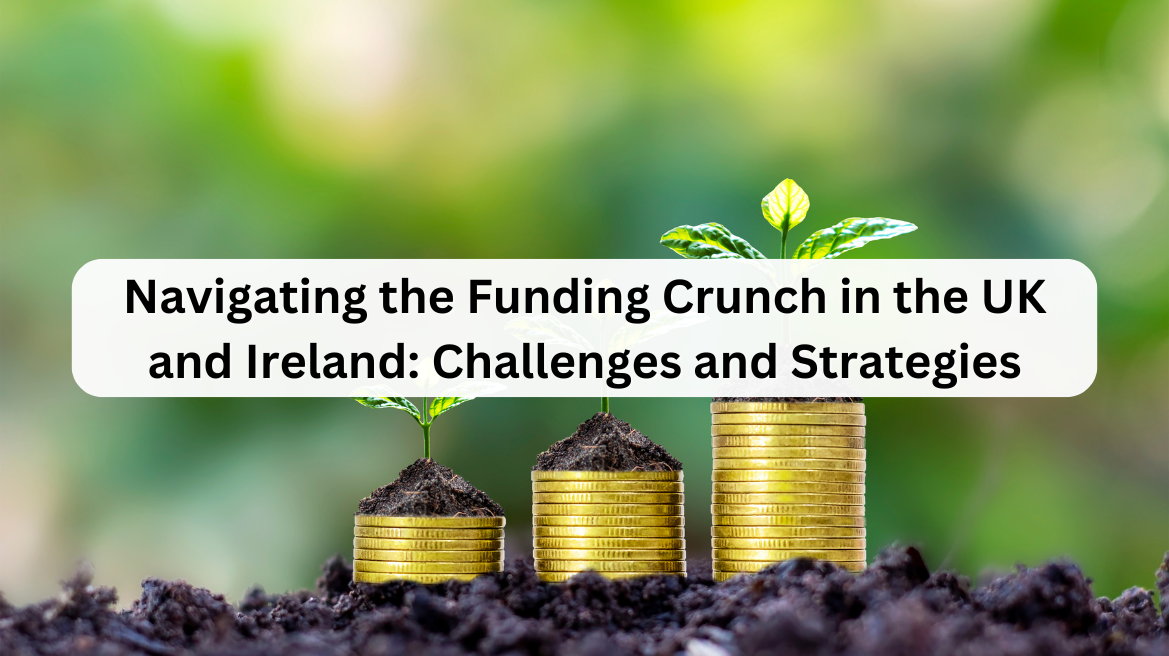- June 25, 2025



Securing adequate funding remains a critical obstacle for businesses and non-profits alike across the UK and Ireland. Recent surveys reveal that capital attraction ranks as the number one concern for tech founders in Ireland, while UK charities are grappling with significant grant and donation shortfalls. Understanding these pain points—and adopting tailored responses—can mean the difference between stalled growth and sustainable success.
Access to growth capital is the foremost challenge for Irish tech entrepreneurs. According to Scale Ireland’s 2025 State of Start-ups Survey, 80 per cent of founders describe securing investment as “difficult” or “very difficult”. This persistent hurdle undermines innovation, delays product launches and risks driving talent and companies out of Ireland’s ecosystem.
Charities across the UK are contending with acute financial pressure. Central government funding fell by 33 per cent between 2022 and 2023, local authority grants have declined by 23 per cent since 2009–10, and individual donations have dropped by 14 per cent in recent years. The resulting funding gap strains service delivery and jeopardises the long-term viability of vital community programmes.
Beyond sector-specific issues, all applicants face intensified competition for a shrinking pool of traditional grants and equity investment. Investors and grant-makers now demand robust business models, clear ESG commitments and demonstrable readiness for regulatory shifts—such as the EU AI Act—adding complexity to the funding process.
• Delayed market entry and product development
• Increased staff turnover as founders seek better-funded environments
• Compromised service quality and reduced social impact in the charity sphere
Without proactive intervention, these trends will widen the funding divide between established entities and emerging ventures.
Diversify Funding Sources
• Combine debt (bank loans, overdrafts) with equity (angel, venture capital) and alternative finance (peer-to-peer lending, crowdfunding).
• Pursue non-dilutive options such as R&D tax credits and innovation grants.
Strengthen Your Value Proposition
• Develop a compelling pitch deck that highlights market validation, traction metrics and realistic financial forecasts.
• Emphasise ESG credentials and regulatory readiness to meet investor mandates.
Leverage Emerging Platforms
• Use UK and Irish crowdfunding platforms to pre-sell products and build community support.
• Explore revenue-based finance for growth capital without equity dilution.
Optimise Grant Applications
• Identify sector-specific schemes (regional development funds, charitable trust grants) early and map out application timelines.
• Engage with grant-writing specialists to enhance success rates.
Build Strategic Partnerships
• Collaborate with universities, accelerators and industry clusters to access matched-funding opportunities and investor networks.
• Consider joint ventures or consortium bids for large-scale public contracts.
The funding environment in the UK and Ireland remains challenging but navigable. By understanding sector-specific pressures—whether for Irish tech start-ups or UK charities—and implementing a diversified, well-structured funding strategy, organisations can secure the capital needed to innovate, expand and deliver impact. Begin with a rigorous funding audit, map your ideal capital mix and activate the most appropriate channels to close your financing gap.
For expert funding, mentorship, business growth solutions, and entrepreneur programs, visit: The Entrepreneur Studio
Follow Us:
Facebook – https://www.facebook.com/people/The-Entrepreneur-Studio/61552810916102/
Instagram – https://www.instagram.com/theentrepreneurstudio/
Twitter – https://x.com/T_E_Studio
LinkedIn – https://www.linkedin.com/company/the-entrepreneur-studio/, Manmeet Abroll, Andrew Evans